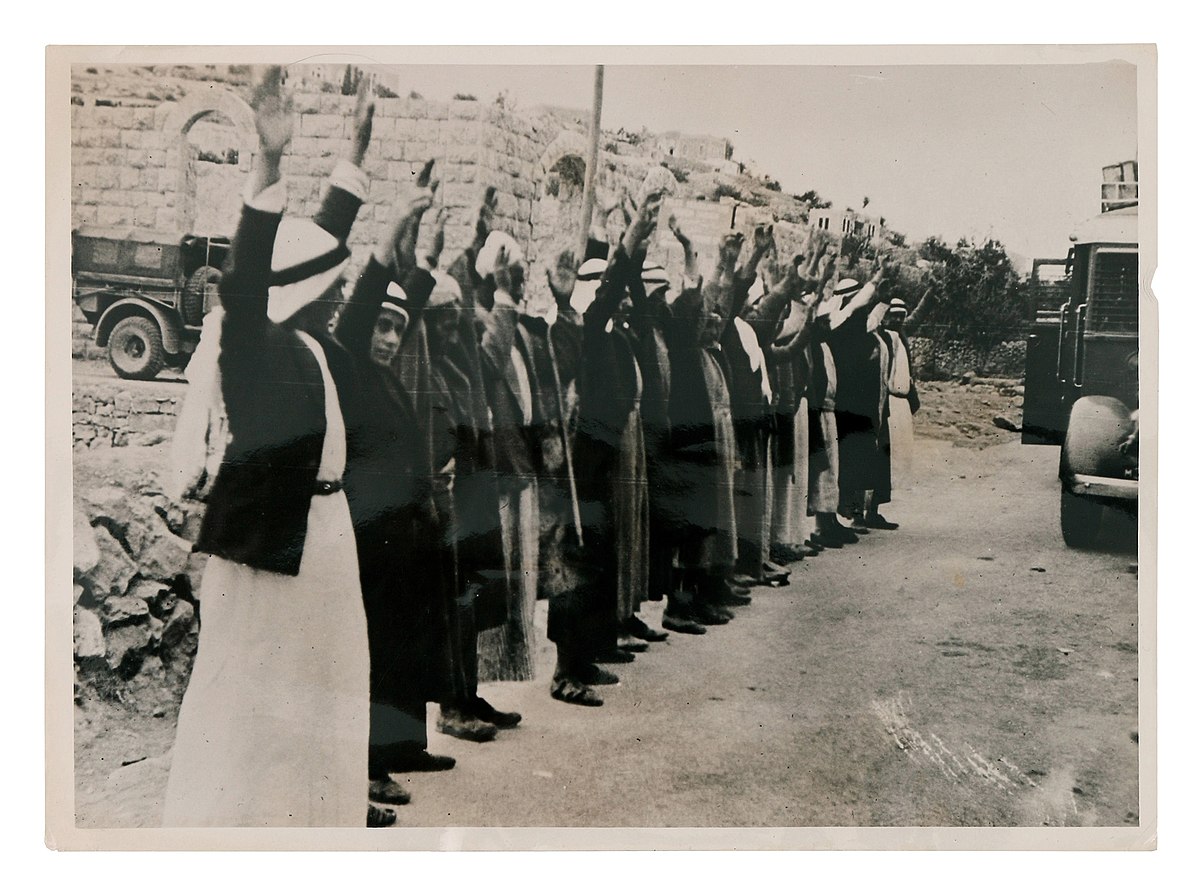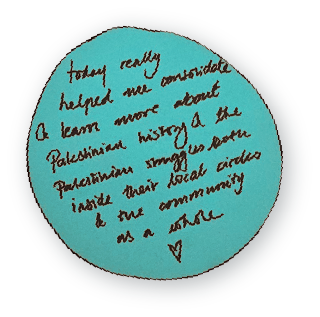British Mandate

The British Mandate for Palestine, also referred to as Mandatory Palestine, was created by the League of Nations in 1920 to place administrative control of historic Palestine in the hands of Britain. Mandates were colonial political instruments designed to act as a temporary arrangement until indigenous peoples were supposedly “prepared” for self-rule by governing authorities.
In 1916, Britain and France had already agreed in secret to divide up provinces of the Ottoman Empire between them pending Ottoman defeat in the war, with Palestine allocated to Britain. This was known as the Sykes-Picot Agreement. After WWI and the fall of the Ottoman Empire, which previously governed Palestine, certain territories were transferred by the League of Nations from one ruling authority to another, or in other words to one of the major imperial powers at the time, most notably Britain and France.
Although the United Kingdom officially gained control of Palestine through the British Mandate in 1920, the British began occupying Palestine in 1914.1 The mandate lasted for just under three decades. After World War II, violence between Arab and Jewish communities increased in Palestine, at which point the recently-established United Nations intervened. The United Nations Partition Plan for the creation of the state of Israel was thus announced in November 1947, after which came the 1948 War and the Nakba. By May 1948, which marked the official establishment of the state of Israel, the British had fully evacuated Palestine, bringing the mandate to a formal end.
British rule in Palestine both facilitated imperial control of the broader Middle East region and helped pave the way for the creation of the state of Israel. Although the British claimed under the terms of the mandate to put Palestine under British control until the Palestinians could govern themselves, by the time the mandate had begun, the British had already issued the Balfour Declaration in 1917, which promised Palestine as a national home for the Jewish people.2 In fact, the declaration was incorporated into the text of the mandate.3 These major contradictions built into Mandatory Palestine, together with Britain’s prioritisation of imperial interests and sustained repression of Palestinian political movements (notably the Arab Revolt of 1936-39), left the indigenous Palestinians marginalised and played a major role in paving the way for their dispossession and fragmentation later on.
References
In this article, Linah Alsaafin explores how the British Mandate paved way for Israeli occupation.
https://www.aljazeera.com/news/2017/10/british-mandate-pave-israeli-occupation-171026082329187.html
In The Hundred Years’ War on Palestine, Palestinian scholar and historian Rashid Khalidi tells the story of pivotal events in Palestinian history through the eyes of his family who was there along the way.
https://us.macmillan.com/books/9781627798556
In One Palestine, Complete: Jews and Arabs Under the British Mandate, Israeli new historian Tom Segev details how the British disregarded the Indigenous Palestinian population and favored Jewish settlers and Zionism in the British Mandate era. https://us.macmillan.com/books/9780805065879
In Mapping My Return: A Palestinian Memoir, Palestinian historian Salman Abu-Sitta recounts the lived experience of the 1948 Nakba and the events that both led to and followed this injustice. His story of expulsion, conquest, and relocation is not unlike the stories of many Palestinians living in exile.
https://www.bloomsbury.com/uk/mapping-my-return-9789774167300/
In The Balfour Declaration: Empire, the Mandate and Resistance in Palestine, Bernard Regan exposes British policy in the region as part of a larger geopolitical game. Regan also details how the effects of the events of the British Mandate era are still felt today. https://www.versobooks.com/books/2821-the-balfour-declaration
Palestine Open Maps uses Mandate-era British historical maps to reveal what Palestine looked like before 1948. Users are able to interact with the map and discover Palestinian villages and towns from this era and discover if they are still around, or if they have been ethnically cleansed or completely demolished in order to create what is now known as Israel.
https://palopenmaps.org/?blm_aid=22581#/
Footnotes:
- https://avalon.law.yale.edu/20th_century/palmanda.asp; https://www.aljazeera.com/indepth/features/2017/05/nakba-start-1948-170522073908625.html
- https://time.com/3445003/mandatory-palestine/; https://www.aljazeera.com/indepth/features/2017/05/nakba-start-1948-170522073908625.html
- https://avalon.law.yale.edu/20th_century/palmanda.asp
Palestine 101
Learn the basics

